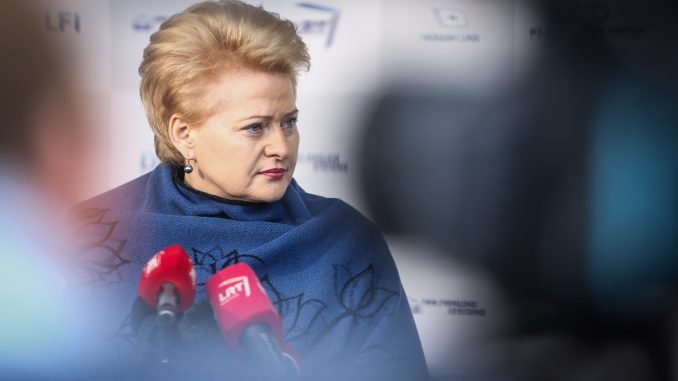
“Lithuania is getting used to the referendum idea,” the president told journalists in Pabradė, a town in eastern Lithuania, where she observed a military exercise.
According to the president, the referendum question must be cautiously formulated “for citizenship acquisition not to become a totally unregulated and uncontrolled process”. Thorough preparation is needed as previous referenda involved “a lot of untruth, hidden information and manipulation,” Grybauskaitė said.
In her words, dual citizenship must be allowed in view of massive emigration flows. “A large part of our nation has emigrated, and it would not be right to strip them of the right to remain Lithuanians, citizens of Lithuania,” she said.
Speaker of the Lithuanian Seimas Loreta Graužinienė and Prime Minister Algirdas Butkevičius said on Wednesday a referendum on dual citizenship could be held alongside the 2016 general elections.
Now in Lithuania, dual citizenship is only allowed for people who left the country during the occupation period, as well as their descendents. But it is not allowed for people who left after Lithuania restored independence.
The Constitutional Court of Lithuania has clarified that the liberalization of dual citizenship is only possible following the amendment of the Constitution by referendum. Under Lithuanian law, such amendments could be adopted if more than half of all voters backed them.
Liberalization supporters say the legalization of dual citizen is needed to help expatriates preserve ties with Lithuania.
Meanwhile critics claim citizens should be loyal to only one state. They also fear that representatives of ethnic minorities in Lithuania might seek foreign citizenship and Russia can take advantage of that.

Be the first to comment